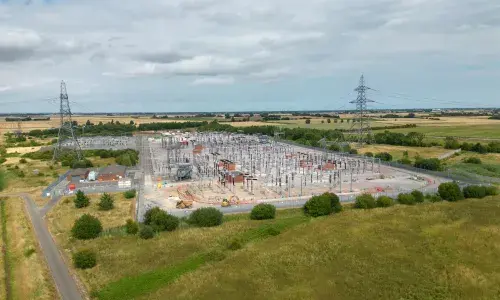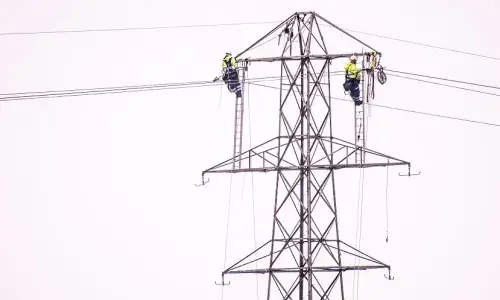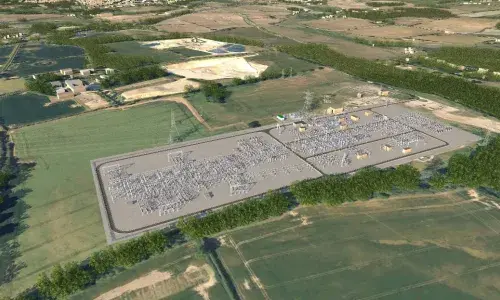
Ofgem approval of new queue management rules is a boost for grid connections
Our director of customer connections, John Twomey, shares insight into how Ofgem's new queue management rule change will speed up connections, and the role National Grid played in delivering it.
Ofgem has agreed a major change to the way the pipeline of projects wanting to connect to the electricity transmission network is managed, allowing non-viable or stalled projects to be removed to speed up the process.
This ‘queue management’ policy change is a welcome development and means network capacity will be used more efficiently. It’s great news for clean energy projects that are ready to connect, and for Britain’s net zero ambitions.
> Seven things to know about electricity grid connections
As the transmission owner in England and Wales, our team at National Grid Electricity Transmission (ET) has been working hard with the electricity system operator (ESO), wider industry, and regulator Ofgem to make this important change.
It’s part of broader efforts to reform connections arrangements, spearheaded by the ESO (which owns the contractual relationship with connecting projects) and delivered jointly with our ET teams which design and build the infrastructure needed to plug projects in.
Hot off the heels of our work unlocking 20GW of connections capacity across National Grid’s transmission and distribution networks, it’s another example of the strong progress being made on reform.
Ofgem’s decision will be implemented from 27 November in the Connection and Use of System Code (CUSC) – the framework governing the rules for connecting to and using the transmission network – and will allow the ESO to remove non-viable or stalled projects to free up space for others to progress.
Before this policy, developers had little incentive to take action to progress their generation or demand projects. This encouraged capacity hoarding, contributed to increased connection timescales, and made it challenging for our ET business to make economical and efficient investments.
> Find out more about the industry codes and what they mean
With this policy, projects will now have milestones to meet – and deadlines for doing so – for example for securing their planning consent and finalising project investment decisions. Where projects do not meet these milestones, the ESO can remove them from the connections pipeline.
Ofgem has also approved the new queue management rules to be applied to projects already in the pipeline – something we at ET advocated strongly for to make sure the policy had the best possible impact on connections timescales. We’ll be working with the ESO to apply the new arrangements to existing contracts within the next year.
Whilst queue management is a vital step forward in how connection projects are managed, it is not a panacea for resolving the challenges around connections arrangements.
> How we’re working with industry to reform transmission connections
There’s much still to do, and we’re determined to continue our collaborative work with the ESO, Scottish transmission owners and industry to build on this latest development.
We’re keen that the principles established through the queue management changes are built on in the government and Ofgem’s upcoming connections actions plan. Doing so will help deliver what we all want to see – a fit-for-the-future connections process that supports progress towards a clean, reliable and affordable energy system.



